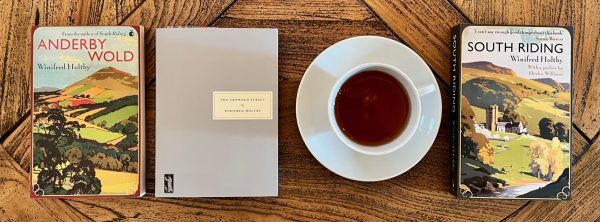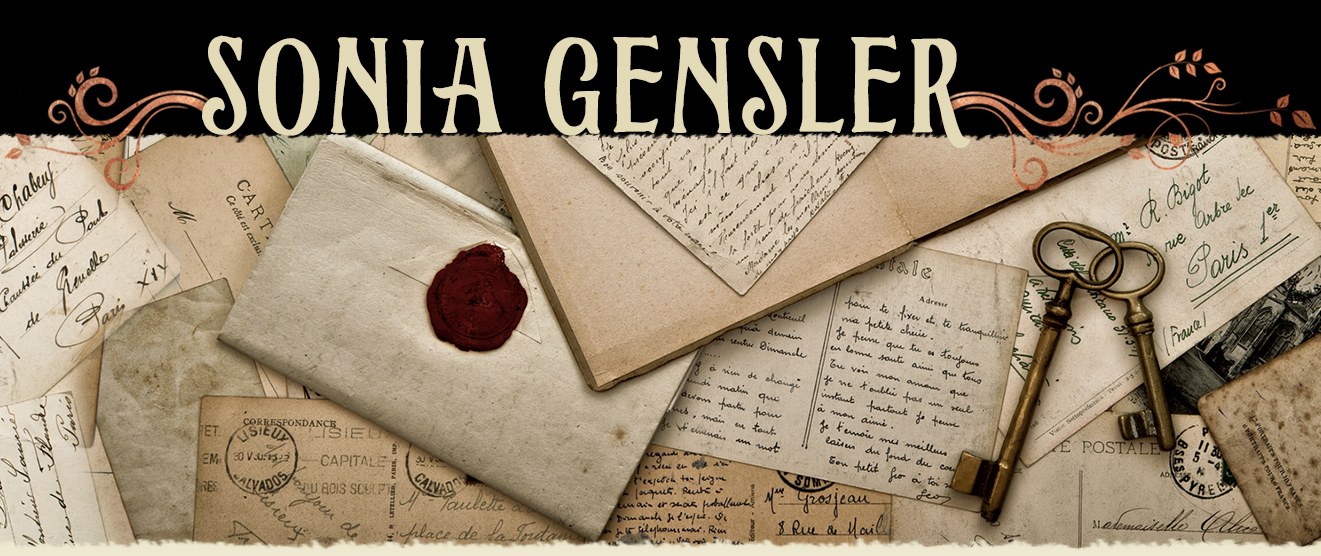For June’s “Tea and a Book” I am celebrating the work of Winifred Holtby (1898-1935), an English author who published seven novels, two books of poetry, two collections of short stories, and a critical memoir of Virginia Woolf, all before succumbing to kidney disease at the age of thirty-seven.
Holtby was born in Yorkshire to a prosperous farming family. After a brief stint in the Women’s Army Auxiliary Corps at the end of WWI, she began her studies at Somerville College at Oxford. There she met Vera Brittain—-activist, reformer, and author of Testament of Youth. Brittain ignited Holtby’s socialist fervor, and the two later lived together in London, along with Vera’s husband, George Catlin.

My favorite of Holtby’s novels is South Riding (1936). I’ve read it twice, and I’m overdue for a third go. It reminds me of George Eliot’s Middlemarch (another favorite), with its large and diverse cast of characters, focus on local government and social issues, and sensitive portrayal of flawed characters. However, if you are leery of diving into a five-hundred page novel at this moment, I can enthusiastically recommend the 2011 BBC adaptation starring Anna Maxwell Martin and David Morrissey. (I watched the series first and loved it, but the novel offers so much more.)
Recently I indulged in two of Holtby’s earlier works. First, I listened to the BBC Radio dramatization of The Crowded Street, having already read the novel a few years ago. The recording was quite good, and it might be a great place to start if you wish to dip your toe into Holtby’s works. The two-hour dramatization is available at Audible.com. (Brace yourself for a bit of melodrama.)
After that I settled down to read Holtby’s very first novel, Anderby Wold. This was published in 1923 when Holtby was a mere twenty-five years old. It brought to mind stories like Hardy’s Far From the Madding Crowd and Gaskell’s North and South, though perhaps it wasn’t quite so romantic. Mary Robson, married to a dull man with little initiative, efficiently manages her own land and stock, dealing firmly but fairly with employees and villagers. Mary’s solid foundation is rocked, however, by the arrival to her village of a clever young socialist. Soon enough, the farm laborers are striking! Worse yet, Mary finds herself very inconveniently attracted to the recently arrived trouble-maker.
Holtby was an ardent socialist for most of her life, but it’s clear from her novels that her rural upbringing instilled a deep concern for agrarian settings and well-meaning landowners. What I love about Holtby’s books is that all the major characters have sympathetic moments and authentic motivations. There’s no mustache twirling, nor are there clunky plot contrivances. For the most part, Holtby’s fictional worlds seem very real, pulling you in and making you care even when you thought you wouldn’t.
The best news? Four Holtby novels remain for me to read!
And now for tea . . .
Today I’m recommending the Golden Jamguri Assam, recently purchased in London at the Selfridges Mariage Frères kiosk. It doesn’t seem to be available on the Mariage Frères website at the moment, and thus it took me a while to find a decent description. I do know that it’s pretty pricey (ouch!), but also LOVELY to drink. I usually have to put milk in my Assam to soften it a bit, but this golden-tipped leaf brews into a very smooth and enlivening cup of tea.
The official spiel
In the highlands of Assam, the organic garden of Jamguri (known as the “land of berries”), which straddles the tropical sky and the fertile soil, has custom-made for Mariage Frères a grand black tea, exclusive and precious.
Carefully plucked, the long, elegant leaves are rich in golden buds. Fragrant, the leaves exhale majestic, intense breaths of cacao, ripe fruit and candied banana. The cup is voluptuous, displaying superb amber liquor with end notes of honey and roasted apple and vanilla.
(You gotta love the way the French describe tea!)
**You’ll find more photographs of the tea and books at my Instagram.**



